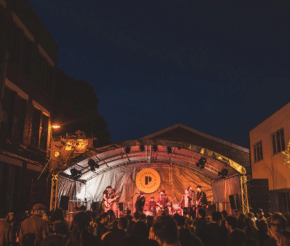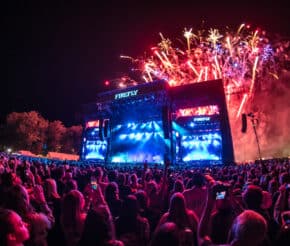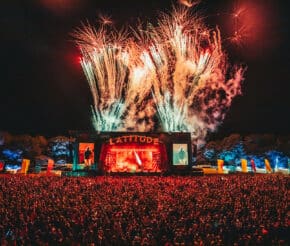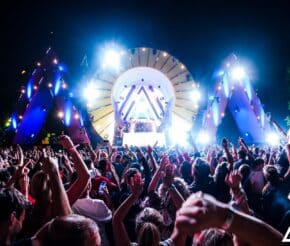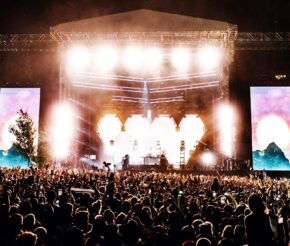- Advertise
-
Subscribe
All About Distortion Festival
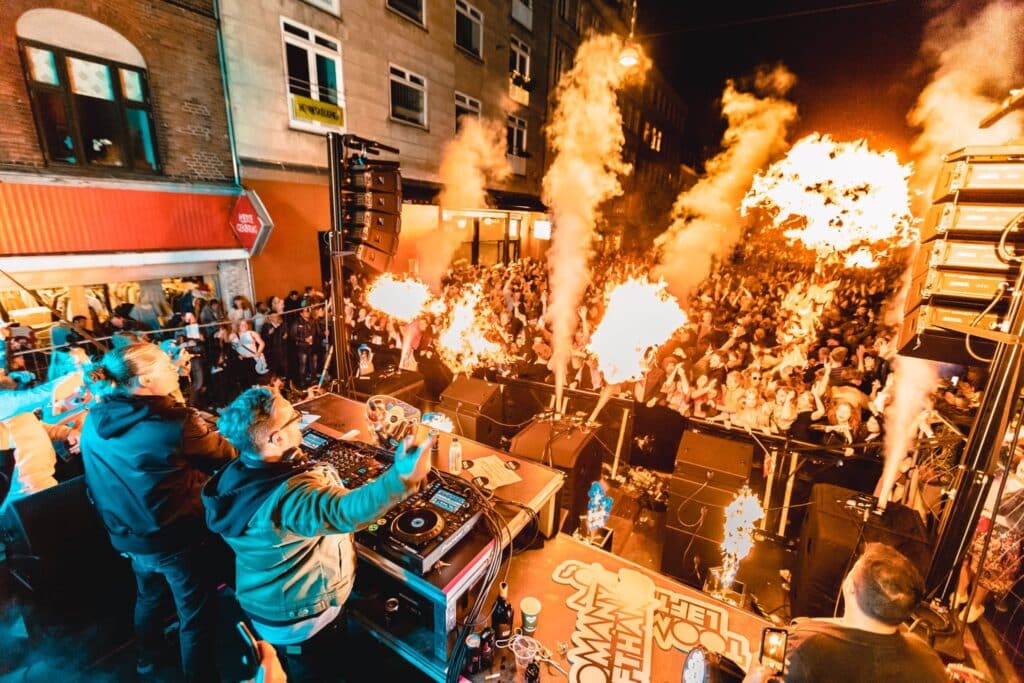
Copenhagen, Denmark
Indoor & Outdoor
XXL – 50k+
Electronic, Hip-Hop
$$
Live music
+3 Days
Distortion Festival is one of the largest music gatherings in Europe thanks to its party animal spirit.
The music festival began in 1998 as a one-night party in a Copenhagen club. Envisioned by Thomas Fleurquin, an entrepreneur and expert in the entertainment industry, Distortion morphed into an annual festival taking place in the first week of June.
The events are mostly held in the streets of Nørrebro and Vesterbro – urban neighborhoods in the center of Copenhagen, Denmark.
Defying the rules of a traditional festival, Distortion ditches the mainstream stages and focuses on a collection of parties.
During the main event, Distortion festival presents a combination of music genres including hip-hop, trap, world, house, experimental, and techno. The festival attracts Copenhageners of all types and ages, and the Distortion Club caters to a young crowd looking to dance until they drop.
At first, Distortion was a small, not-fully-legal multi-day party-crawl in Copenhagen. After achieving success, Distortion collaborated with the Copenhagen City Council and the Copenhagen Police to launch a larger event and join the list of the world’s top festivals.
Here’s everything you need to know about Distortion.
The music festival was born in 1998
Distortion started as a one-night party in Copenhagen’s Mantra nightclub with the tagline, “Distortion – A Celebration of Copenhagen Nightlife.” Thomas Fleurquin, who was born and raised in Paris, moved to Copenhagen in 1998 and co-founded local newspaper The Copenhagen Post with close friend San Shepherd and his father.
In an interview, Fleurquin said he “fell in love with Copenhagen” and saw international potential in the cultural capital.
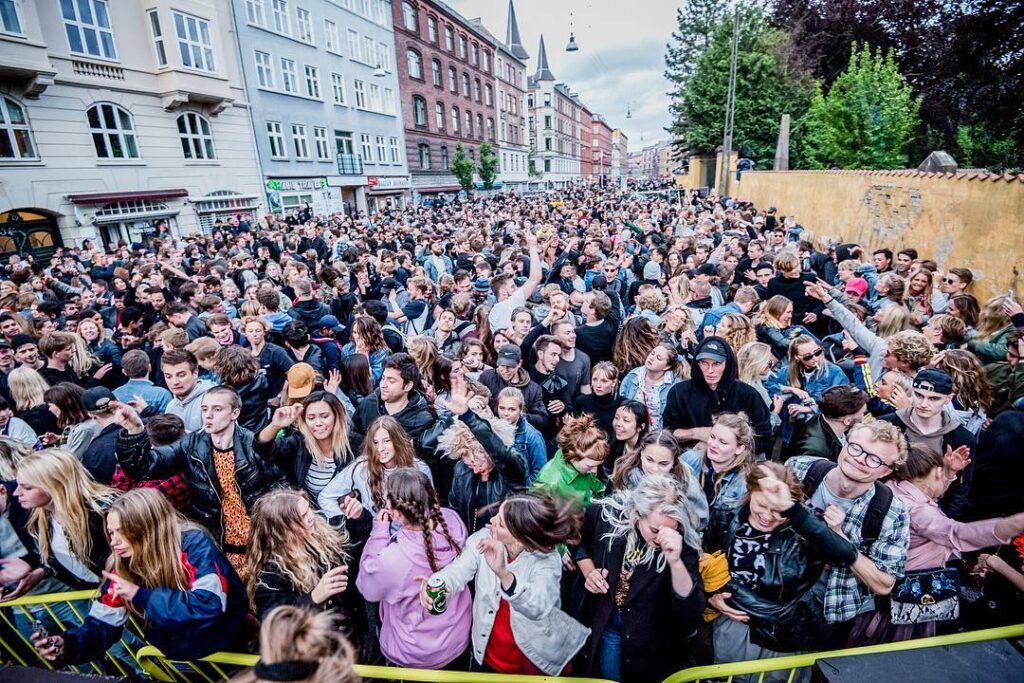
The festival’s first edition didn’t have high hopes for a 50,000 attendance or enough funding for a second rodeo – it just wanted to celebrate the newspaper.
In 2007, after attracting 2,000 guests at a single street party, Distortion collaborated with the Copenhagen City Council and the Copenhagen Police. This partnership resulted in the creation of one of the largest events in Europe.
The festival can accommodate a huge number of people
After the event went fully legal in 2011, the festival’s popularity increased remarkably. As a result, Distortion saw a massive number of people flooding Copenhagen’s streets to get a taste of the festival’s beats.
That same year, Distortion saw 80,000-100,000 attendees daily.
In 2012, the Copenhagen Distortion Foundation was established
The Distortion Foundation promotes arts, culture, and social initiatives in public spaces while seeking to protect the festival celebrations against obstacles and challenges.
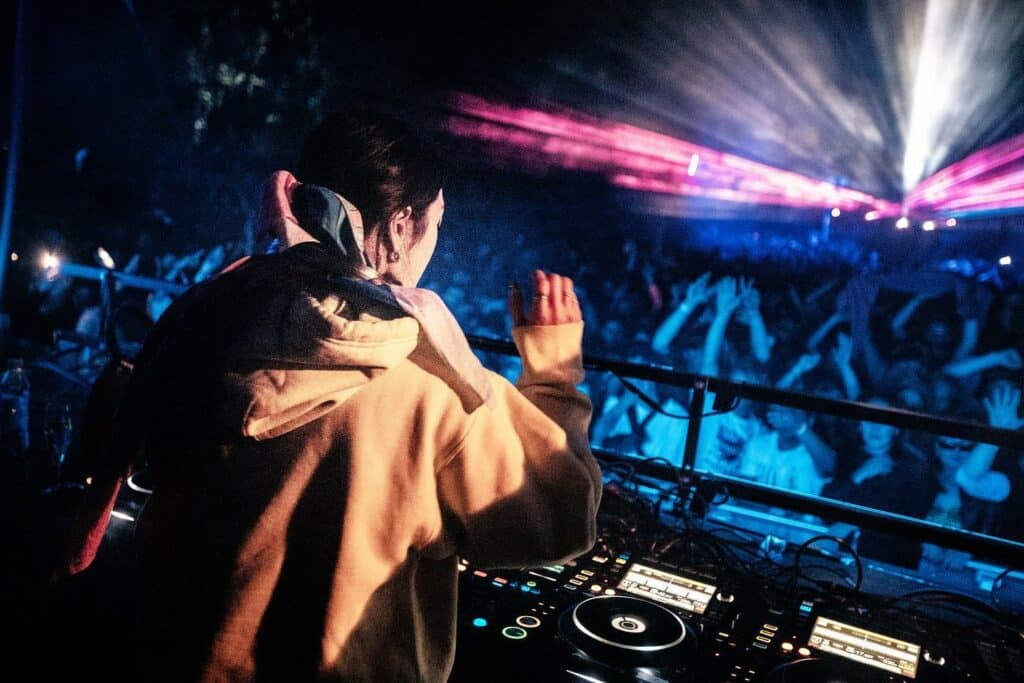
This foundation is an independent NGO whose main objective is “to celebrate Copenhagen street life & modern party culture” in accordance with Distortion’s fundamental values “dynamic, generous, fun”.
Several street parties take place daily during Distortion week
During the day, Distortion festival hosts 20 to 40 street parties between Nørrebro and Vesterbro, two Copenhagen districts. The street parties run every day from 4 PM to 10 PM.
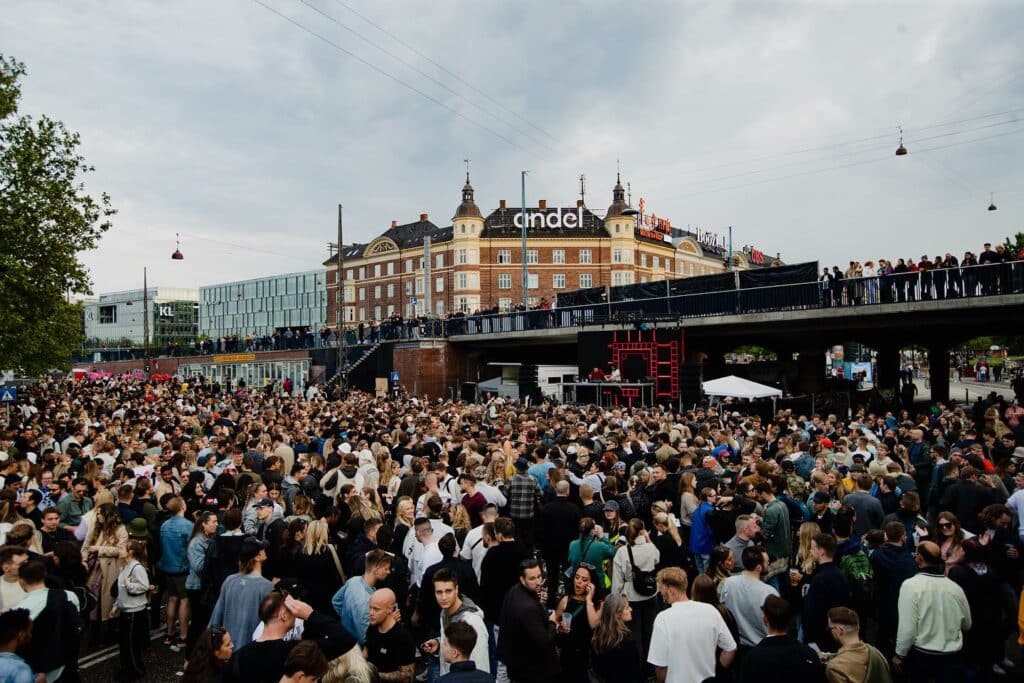
Each day, the street parties attract thousands of people who attend to enjoy the music and dance in the city’s streets – not an everyday sight.
These parties are partly financed by the Street Wristband, which is a voluntary donation of €13. Through this donation, attendees help fund the production and clean-up of the street parties.
Distortion’s parties have something for everyone
Distortion brings together a large crowd of people, turning the entire city into a giant nightclub.
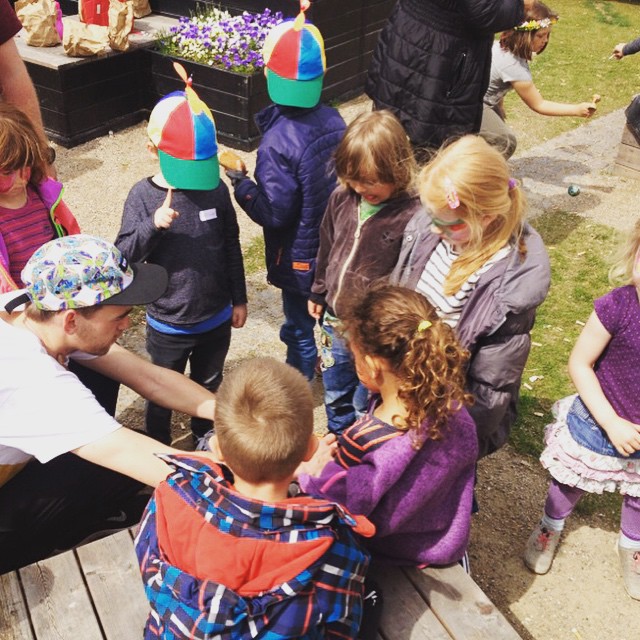
In addition to that, the festival features some events for children along with pop-up street restaurants and a stage for international classical music.
The festival is committed to being inclusive and showcases an eclectic mix of events that cater to diverse demographic segments.
For example, Actionhygge is an event that claims to be strictly “no raves” as it tries to bring together an amiable atmosphere fit for children and grown-ups.
The music diversity makes the event more special
Though the festival focuses on specific music genres including techno, hip-hop, house, trap, and experimental, it never misses an opportunity to surprise guests with an unexpected blend of beats.
While attending a street party at Distortion, guests should expect diverse music genres to pop up thanks to the festival’s “anything goes” music program.
The Distortion Club is a major part of the event
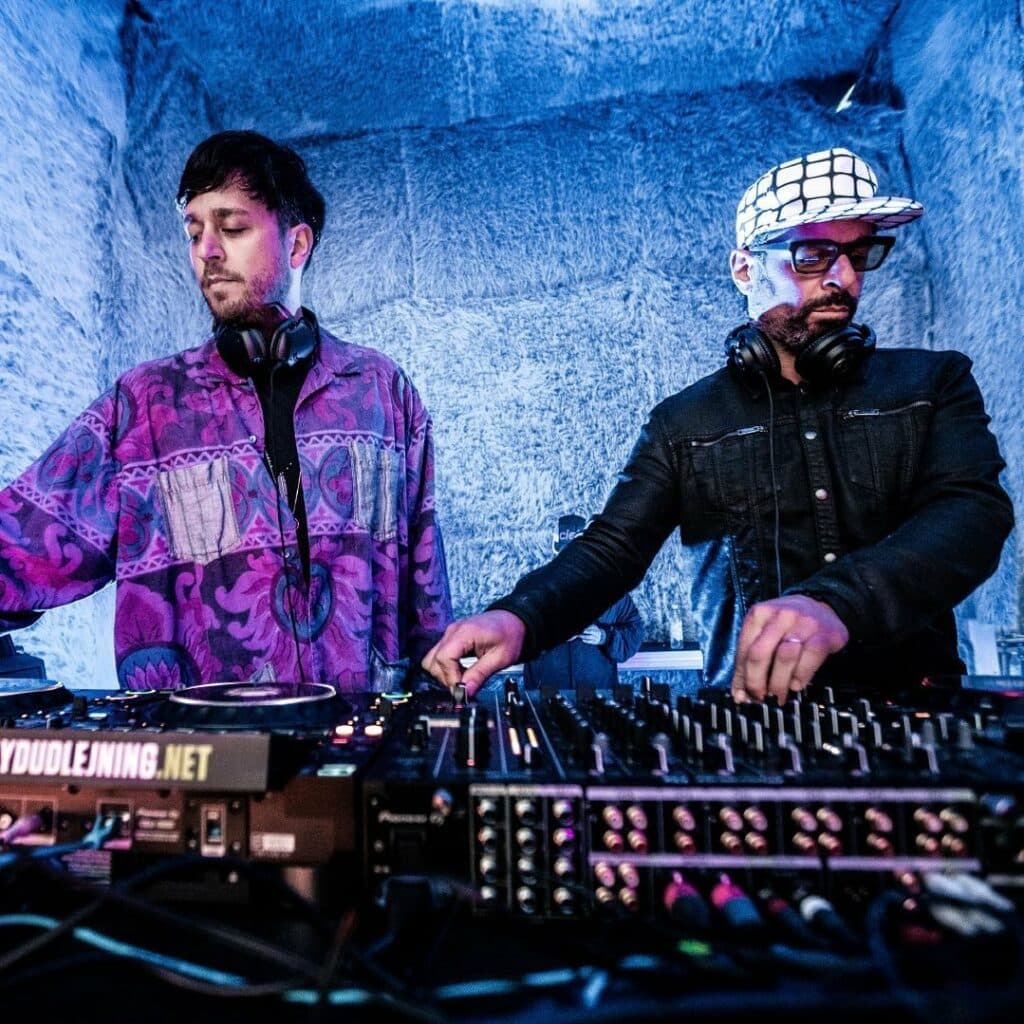
After a long day of street parties, the music-fuelled shenanigans continue when the sun goes down at Distortion Club.
In contrast to the street parties, the Distortion Club takes place inside various nightclubs and venues.
Hot Chip, Simian Mobile Disco, Spank Rock, and Sebastien Tellier were all Distortion Club performers before they became famous names in the music industry.
Distortion Ø is the part that cannot be missed
Among the several parties that take place during the festival’s week, Distortion Ø is the main event. Previously known as the Final Party, the closing event usually takes place on a former industrial island in Copenhagen’s harbour.
Distortion Ø is the largest festival in Northern Europe for new electronic music such as grime, bass, house, electronic pop, experimental, and techno, attracting between 14,000 and 15,000 people each year.
With the cheering crowds, fireworks, lighting system, and everyone gathered in the same place, this is the part of the Distortion series that looks and acts like a traditional music festival.
Distortion festival offers guests a campsite
Distortion attendees will have the chance to set up their tents at the camping site located on the island Refshaleøen.
The camping site is cozy and the options are affordable. Guests can bring their own tent or purchase a biodegradable tent that will be ready upon arrival.

Distortion has evolved from a typical one-night party at a nightclub to one of Europe’s largest music festivals, providing a lively experience like no other.
